Interview with a Red-Pilled Black Woman
Robert Walters and Nicole Smith, American Renaissance, August 21, 2020

Introduction
I am a younger white nationalist white man who has chosen to interview my black wife on the issues of race, identity, culture, racial politics, and current events. Raised in a liberal home, it wasn’t until four to five years ago that I was red-pilled, about a year after we had our first child together. Being “blue-pilled” at the time, neither of us saw any issue with race-mixing, and we committed to building a family together. After being fully red-pilled, and especially after seeing all the events that took place surrounding Donald Trump’s election, the “Unite the Right” rally, etc., I became painfully aware of the realities of race, and the current political and cultural situation we find ourselves in today.
After having these tough conversations with my wife, I found she agreed in principle with almost everything that race-realists and Dissident Right people believe, as she was an outcast in the black community her whole life due to her refusal to join the thug-life crowd of victim-minded blacks who blame whites for everything. The red-pilling only served to give a full explanation of how we both felt about the issues, like a “light-bulb turning on” moment.
We fully understand a lot of people on the Dissident Right are against race-mixing and not without good reason, but as we cannot go back in time and undo our situation, we have decided to remain faithful to our family in spite of the irony. There is no doubt what side we both fall on, and what we support, although we receive attacks on both sides of the political spectrum, from liberals who call us racists (how ironic) and from some alt-right followers who attack and condemn us for our miscegenation.
We believe strongly that there is a path to redemption for any and all Americans who choose to take the red-pill and wake up to the truth, and we believe that no matter how degenerate their past, or how strong their former liberalism was, that they should be given a second chance to believe the truth and act upon it.
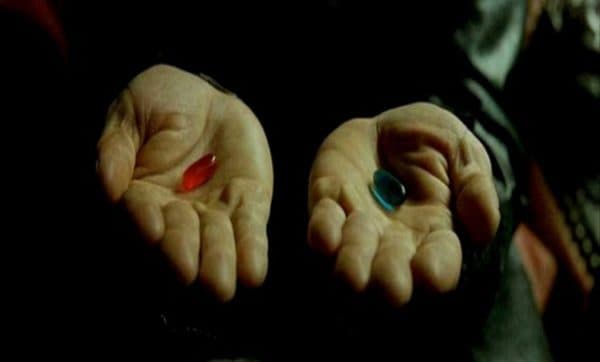
The red and the blue pill, as presented to Neo in The Matrix.
If our goal is to “save America” or to “save the white race” then we should be compassionate to the many fellow white brothers and sisters who have gone astray, and we should aim to regenerate them with the truth so that they can join us in our cause. How far gone is America? It is hard to look at our country, and our race, without seeing how much liberalism has corrupted both. If we want to save both race and country, then we must accept the fact that we are going to deal with imperfect people who have been corrupted by this malevolent system.
If we condemn our fellow whites for their past mistakes, whether it be for race-mixing, degeneracy, or past allegiance to the liberal establishment, then we will be stuck with only the few of us who have supposedly “always been red-pilled” and have never committed a sin against race and country. I do not believe, however, that such a person exists, and the overly self-righteous attitude of some on the internet is not only pointless and vain, but also destructive to our movement in many ways. We should be trying to win more supporters, not lose more.
My wife wanted to give a firsthand account of her own experiences regarding race, and I fully agreed that it would prove beneficial and interesting to the readers. We hope that this account will be encouraging to those on our side and could possibly assist in the red-pilling experience of some who deny the truth. We also hope that some within the dissident right movement will realize that, although few, there is a minority of truly conservative blacks who fully support a white America, and whites as a people. We can and should ally with them, and it is unnecessary to believe that allying with any blacks whatsoever will undermine our movement. — Robert Walters
Part I — Growing up and red-pilling experiences
Robert Walters: What was your childhood experience growing up in the black community? How did you think of race growing up? How did your peers think of race?
Nicole Smith: Well, growing up I was very conscious of race. I was aware that certain people — and certain races — act differently, that is how I was raised to be. With these differences, the starkest contrast was between the black kids and everyone else. Most of them were undisciplined, loud, obnoxious, and bullies. My dad raised me not to be that way. I treated people the way they treated me regardless of their race, and if I didn’t like what the other kids were doing, I wouldn’t participate.
Most of the kids who did things that I had to distance myself from were the black kids, because of their rude and obnoxious behavior. They were very quick to cause conflicts with people who thought differently from them, or who were different from them, which was the exact opposite of how I was raised to be. A lot of kids would feed into the bullying and the fighting in a mob mentality.

RW: So, the cliquing up and the bullying was mostly based on race, correct?
NS: Yes. They would all go along with each other, feeding off each other’s energy. If one was fighting, the others would often jump in. It was chaos. And I refuse to be that way regardless of who was trying to pressure me into it. A perfect example was in middle school on the bus, where the black kids, who said that because Rosa Parks had to sit in the back of the bus in the civil rights era, that they needed to take over the back section of the bus and only allow other black kids to sit back there. If you were any other race, they would not allow you back there.
I didn’t speak up because there were at least 10 to 20 of them, so of course I was afraid to stand up to that many of them, but I didn’t participate in it and sat in the front with the other races of kids. I did not think that it was right to use the history of black people being oppressed as a reason to get revenge on other races today, and to be bullies to them. Although they mostly did it to whites, they did it to everyone else too, including Mexicans and Asians. But I wasn’t okay with it, so I sat in the front of the bus and didn’t participate in it. It was bullshit to be honest.
RW: So going into your high school and college years as a young adult, did you continue to stick to yourself, your beliefs, and the way you were raised, or did you ever start following the crowd and going along with the things the other black kids were doing? Did your racial consciousness change at all?
NS: Going into high school I definitely became more conscious of race, and I continued to stick to myself. Again, I’ve always been a naturally shy person.
RW: Just for clarification, by being conscious, do you mean mostly conscious of the behaviors of blacks, or do you mean something else?
NS: Yes. Growing up, seeing how most black people acted, I didn’t want anything to do with it. I would avoid it at all costs, and therefore I had to avoid people and be relatively antisocial. If they would say “hi” to me, I would of course be friendly and say “hi” back, but oftentimes they would be loud and obnoxious and I would literally have to walk in the other direction to avoid them, or if I had to walk past them, I would avoid eye contact and keep walking. What they thought was cool was not cool to me.
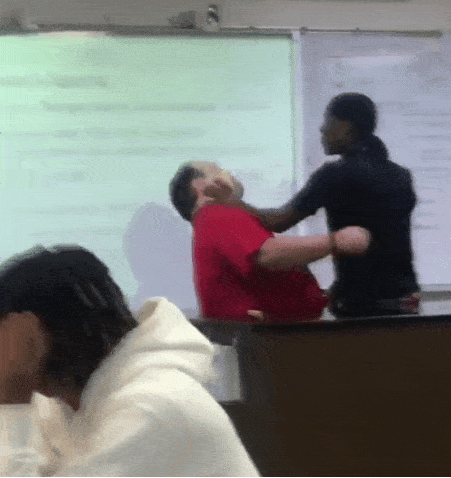
A black student assaulting a white teacher in Texas. (Source)
Although I did make a few friends, they were the type of black kids who were the decent and respectful type — who would try their best to make me feel comfortable around them, who were just decent and had more in common with me. Of course, I wasn’t into the partying either, although I would get invites, I would never go. Large crowds of people in general — but especially ignorant blacks — always made me uncomfortable because I wouldn’t know what to expect. And especially because every time I would hear kids talking about the latest party, they would always end in conflict, either someone was shooting, or someone was fighting. And I don’t like being around violence, it makes me very anxious to even think about being around it.
RW: So what happened in the transition from high school to college? Was college the same as high school regarding your experience with race?
NS: I graduated, and I went to college about a year later. It was a little different than high school, as most people were more mature. The classes were a lot more diverse racially, but the people there were a lot more decent. However, I still was not very social but had a few good friends. My perspective on race, and especially the black community didn’t really change much if at all.
RW: What led you up to the point where you became a race realist?
NS: Honestly, it was mostly what I saw all around me in the black community, especially since I had to walk and take the bus to get to school and my job. I saw a lot of crazy things on the way, especially downtown where all the black kids hung out. Some days were okay, but some days they would get extremely rowdy, and there would be a fight at the bus stop, or we couldn’t get on the bus because there was a fight on the bus.
I couldn’t believe how much immaturity there was, and it really bothered me that they seemed to be incapable of acting like adults but more like sensitive children. There was a lot of chaos especially at the main bus stop, so instead of having to deal with it, I fixed it by going to the bus stop down the street because no one was there. So becoming a race realist was just seeing what was in front of me, it wasn’t rocket science, I just knew that if there was bad behavior, violence, arguments, or disturbance of the peace, that nine times out of ten, it was a black person responsible.
RW: So how has your experience influenced your views on the current racial conflict in our country? Was it just your experience growing up or was there something specifically that red-pilled you?
NS: Mostly from what I’ve seen growing up. It was easy to connect the dots. The same black kids I saw growing up and that same behavior is what is responsible for the racial conflict we see. Black behavior and crime are the real problem, not their excuses of systemic racism, police brutality, and oppression. They use any and every excuse possible to excuse their behavior — even going centuries into the past using slavery.
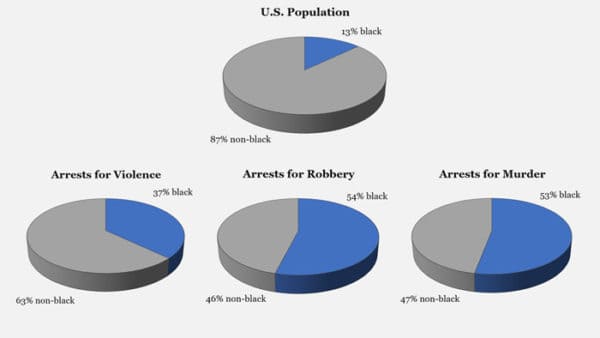
RW: Why do you think they are so desperate for excuses? Just to cover up their bad behavior, or is there more to it?
NS: Just to play the victim. I hate people who have a victim mindset. Who and what is stopping you? The police are not stopping you; the government is not stopping you; racism is not stopping you, it’s only you that is stopping yourself from succeeding. You can’t keep pulling the black card for literally everything. And most black people just have a herd mentality, when they see some blacks who use the black card, they all follow suit, because they are emotional people who don’t like to use their brains to think about it; so they engage in emotional thinking.
And with all the misinformation and lies from the media, they are very easily manipulated into buying into all of the fake news telling them racism is holding them back and that they should be mad at white people and the police and the system for oppressing them — and so they blame them for their shortcomings and misbehavior. This is how they are when they don’t get their way, and it can be something as stupid as when they don’t get accepted into Section 8. They’ll whine: “the system is against me!” but it’s like, no, you just didn’t qualify, get over it.
RW: Were you taught the system, police, and whites are racist and holding you back growing up?
NS: No, not at all. My dad taught me that we need to be responsible and work to earn what we needed. He was a hard-worker and got along with most people regardless of their race. I was never taught that the police were racist, or to fear them, and I was taught that if I was pulled over, I just needed to be calm and respectful and there would not be any problems. It’s simple: be disciplined and control yourself, and the odds are you’ll have a decent life; but it seems like most blacks today aren’t able to comprehend that, as we can see with all that’s going on.
RW: What is the primary cause of your “red-pilling” experience other than simply your experience growing up? What caused you to connect the dots between your experience and the current racial issues in America?
NS: Definitely when Black Lives Matter started, I was very curious. At first, I didn’t see the truth behind it, but I wanted to look into it since a lot of people were jumping into it. It just seemed to kind of explode into riots and all kinds of chaos very quickly and that is when I realized. I mean, even if the so called “innocent” or “unarmed” black person was truly innocent or unarmed, it still does not justify rioting, blocking traffic, violence, and burning down buildings.
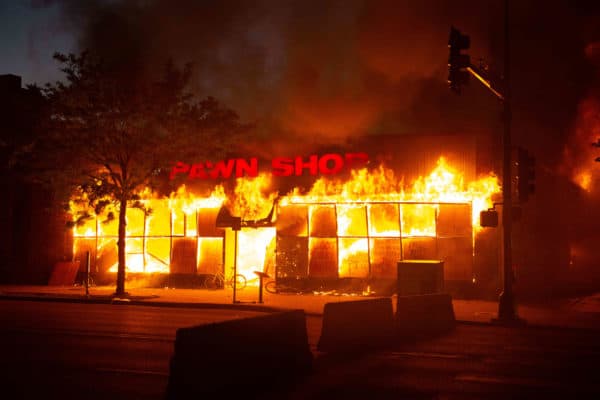
May 28, 2020, Minneapolis, Minnesota: A pawn shop down the street from the 3rd precinct burns to the ground, during the third day of protests over the death of George Floyd in Minneapolis. Wednesday night and Thursday morning, the Minneapolis Fire Department responded to more than 15 different structure fires resulting from the protests. (Credit Image: © PPI via ZUMA Wire)
With the recent riots, it’s just so ridiculous that BLM has raised all of this money and they aren’t using it to rebuild all of the stuff they destroyed and burned down, so now the people in the communities have to go and try to raise money to rebuild everything. It’s so stupid that they burn down their own communities and then cry about how everything is destroyed, and they need money to rebuild. Where the hell is all the money that was donated to them? They should be responsible for the rebuilding.
And of course, they want to exclude white-owned businesses from receiving help and donations, and only want to give it to black-owned businesses. I don’t support BLM at all, not in any way. I mean with George Floyd for example, obviously the cop who kneeled on him was a little excessive, but black people really had to burn down Minneapolis? Now people are angry and scared for their lives in Minneapolis, and are paranoid anytime they see a black person, and how could you blame them?
RW: So getting specific about their claims that basically all or at least most of the problems in the black community are because of systemic oppression, white privilege, police brutality, mass incarceration, etc. Do you agree at all with these claims?
NS: No, the problem is black behavior and criminality. I mean we see right before our eyes when the police finally start leaving the black ghettos, crime starts skyrocketing. Just in the last week or so most major metropolitan areas have seen a 200 percent increase or even more in violent crime. And what about black-on-black crime? We have been ignoring that for like, ever.
Then black people want to try to say that white people are responsible for the black-on-black murders! No, white people are not invisibly controlling us or forcing us to shoot each other, it’s super simple: We have a lot of stupid black people who are in gangs, who are drug dealers, and who have a lot of enemies they want to take out. And they love when the police back out and they take advantage. And then of course, once the crime starts going up again after the police are leaving, then you have black people crying “Oh, please come back, there’s too much violence!”
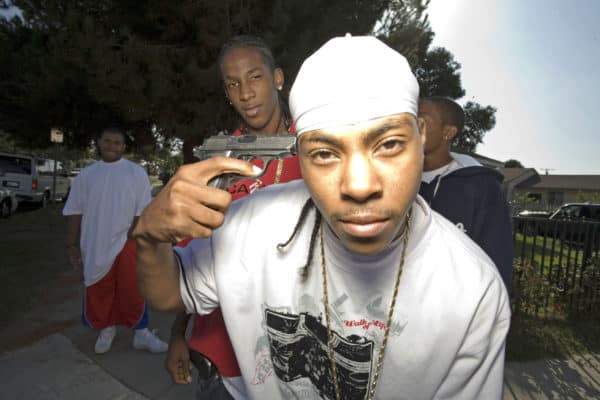
Credit Image: Mark Allen Johnson / ZUMAPRESS.com
But why did they not think about that before they rioted and burned the city down, or before they screamed at police to leave and called them racists? This is so obvious, it should be common sense, but apparently that is hard to come by nowadays. You have literal black children and black families getting executed by other blacks, but of course, they don’t want to admit the truth, which is what infuriates me the most. The real problem is black-on-black crime, and they don’t want to admit the truth and simply see it for what it is. When will enough be enough? I really begin to wonder. And now it has escalated in places like Seattle and Portland where Trump literally has to send in federal officers to control it, and they still fight back and riot.
RW: What do you think is really behind BLM, do you think they are just ignorant and really believe what they say, or do you think that there is something more sinister behind it? What do you think their real goal is? What would happen if they could have everything they wanted right now?
NS: Black-on-black crime wouldn’t change obviously. But I do think there is more to it than what we see, I mean because they want things like reparations which is even more ridiculous. So, it seems to me that the goal is racial revenge. It’s dark and sad to believe, but I don’t know how you can watch what has been going on and see it any other way. For me, I was not raised with a victim mindset, and I hate people who have that mentality. I wasn’t raised to hate white people.
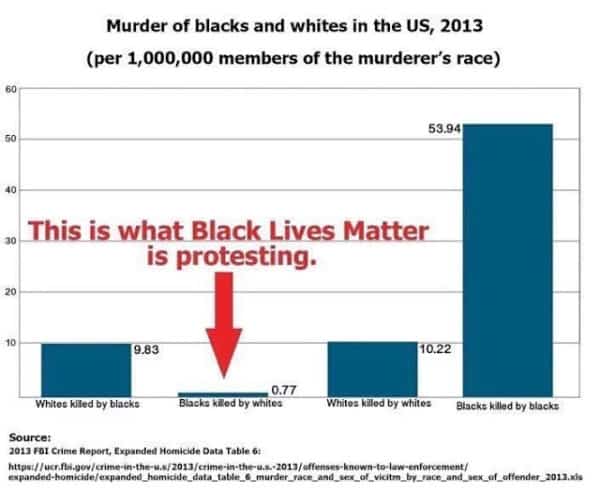
RW: What are your thoughts on your own race-mixing experience? What does your family think of it?
NS: I don’t honestly think too much about it. Although it’s definitely different than having a relationship with someone of my own race. Most black guys have nothing going for them, and they have unpleasant personalities, and are in general not enjoyable to be with in any kind of way. They tend to also beat women a lot, and although I haven’t been abused myself, I’ve seen a lot of women who have been. As for my family, race-mixing is not a big deal to them, as many of them are in interracial relationships as well so they have been accepting of mine.
RW: Do you worry about your own child’s sense of identity? Do you worry that she will get sucked up into the worst of black culture?
NS: No, I don’t worry about her sense of identity. I feel that she will lean more towards her ‘white side’ because of the environment that she is being raised in. She is overall closer to her white family than her black family, and the few who she will be close to on the black side are decent people, not thugs. She will be raised with discipline and the fear of God, and she will be raised with traditional values.
When she is old enough, we will tell her the truth about race, and she will be extremely discouraged from adopting any negative aspects of black culture or “thug culture.” We will take whatever precautions and actions necessary to ensure she is raised in the best manner possible. Obviously, a big measure we will take will be to not allow her to hang out with other kids who are trying to act like thugs, although she is growing up in a majority white and conservative community.
Although genetics play a large role in determining these things, I do not believe that it seals every individual person’s fate. I’m not naïve to the problems she could face growing up as a mixed-race kid, but she will have a strong foundation and community and family around her guiding her in the right direction, and ultimately I trust God that He will give grace for the things we cannot control.

RW: How much of a strain have your dissident opinions put on your relationships with other blacks, especially with your family?
NS: Not much of a strain, because I don’t really talk to many black people about these issues as it’s hard to find like-minded people. My family is not engaged heavily into things political, so we have not had any serious issues regarding my dissident views as of yet, but they do know my values and they respect them and how I choose to live my life.
Part II — The white reaction
RW: What was your first reaction to Donald Trump’s election?
NS: Well I’ve never been heavy into politics, that is until I met and got into a relationship with a white man, which got serious in 2016, the same time Donald Trump was elected. As far as Trump, I never had a problem with him being president, while it seems that a lot of other people were deeply traumatized by it! Trump is not one to control his mouth very much, and a lot of people get very mad and offended at him for his bluntness, but I think it’s funny. People are just so sensitive! They are mad that Obama is not president anymore — because he was their wet dream: A black, eloquent liberal who pandered to and coddled blacks and immigrants.
I admired Obama for his commitment to his family and his professionalism, but obviously I didn’t see his policies as being good for America. A lot of blacks and liberals bought into everything Obama did simply because he was black, polite, and professional. But with Trump I fully support his policies, especially on immigration and the border wall, I mean why can every other nation protect their border and control immigration, but we can’t? I’ve never understood that. I honestly think that it’s a good thing for a white man to finally stand up and put America first, and to try to stop the immigration madness and take control of the destiny of America. Why is it racist for whites to stand up for themselves and say that they don’t want floods of immigrants of other races to come into the country?
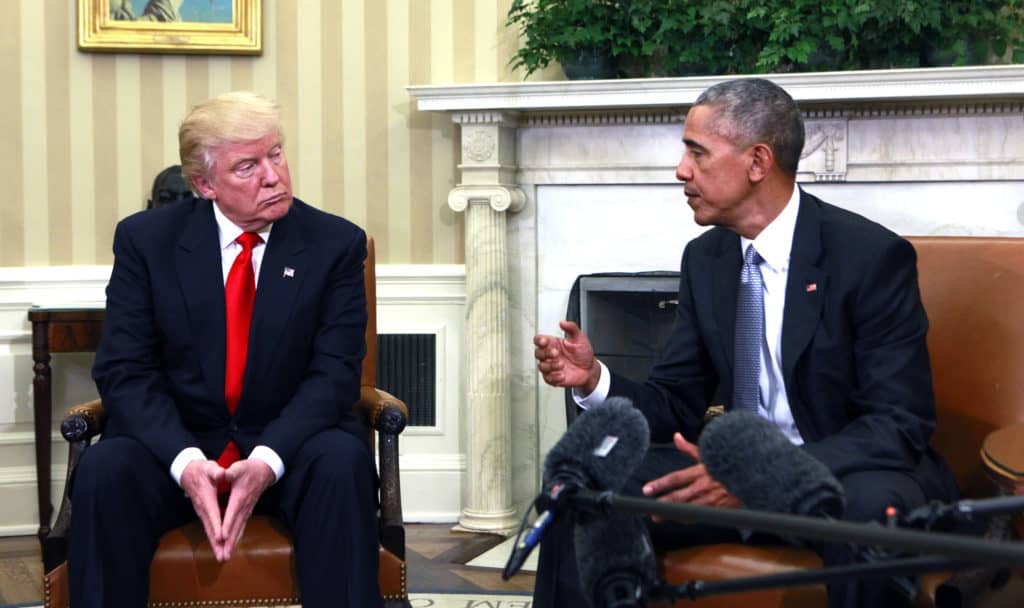
Credit Image: © Dennis Brack / Black Star / Newscom via ZUMA
RW: That’s a good transition to the next question: What was your first reaction to the so-called “alt-right?” What do you think about the “Great Replacement?”
NS: Well, interestingly as I said before, I didn’t get into politics that much until 2016. The “Alt-Right” was relevant right around that time, which was heavily revolved around Trump. But I think it would be overall bad for white people to be the minority in America — especially for white people themselves. Why is it wrong for white people to want to keep their country the way it is?
I mean all it took was some blacks and immigrants to start raising their fists and protesting that they don’t like the way it is here, and it seems like everyone just followed along with it. No one seemed to question the narrative that immigration is somehow good and necessary for America. As a black person, I don’t feel the need for my race to become the majority, I was and am content with the way things are with us being a minority. I don’t need for more blacks to take power in the government or in the corporations, it means nothing to me.
White people are totally justified to oppose their replacement. As far as the alt-right as a movement, and the leaders, what first struck me was what they were saying made a lot of sense, but I just hadn’t heard anyone say the things that they said or put it in the way they put it. It was refreshing to hear some out-of-the box honest thinking, and that kind of thing is rare these days. They challenged the way people think currently about current issues. I don’t see why people were so triggered by some white men saying that they want to survive and not be replaced by other races, and that they don’t hate themselves or feel guilty for being white, but rather are proud.
It’s a good thing to fully love who you are, instead of most whites who today seem to hate their own race and want to try to be something else, or to be some kind of ally to other races that hate them as well. It’s pretty lame to be honest. So, the alt-right was trying to do something amazingly simple, but obviously the other races aren’t down with that! But the bottom line is that this country has always been a majority white nation, and if you as a minority don’t like it, you’re free to leave; this isn’t the only country on planet earth. It’s not rocket science why some people say, “If you don’t like it go back to where you came from.” But most blacks and liberals aren’t too bright and therefore can’t understand even the most basic of concepts, like the right to self-defense and the right to freedom of association. And not only do they not understand, but they get triggered by it.
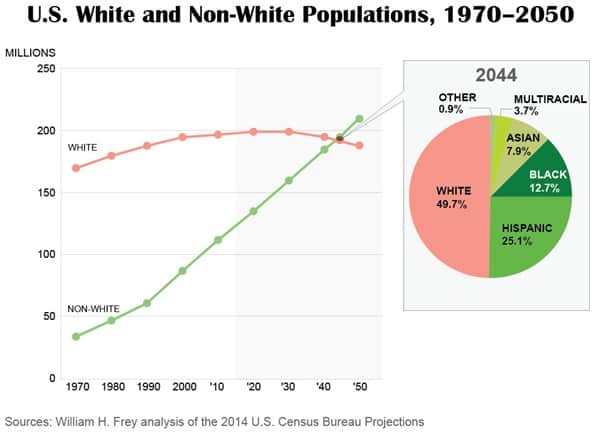
It’s a sort of cognitive dissonance. When whites tell blacks to go back to Africa, it’s simply because white people, as a historic majority in this nation, want it to stay that way and if you want to live in a majority black country, that’s where they are already — go ahead and go there! How could you blame them for not wanting blacks who hate them and commit high levels of crime, and riot and burn down cities whenever they feel something racist happened, or when they try to blame them for all their problems? But blacks, being very sensitive people, they interpret these things emotionally and keep pushing the “melting pot” slogan and other unintelligent mantras to further their cause of taking over America.
RW: So, what was your reaction to some of the college campus lectures given by Richard Spencer and Jared Taylor for example? What did you think about how the students responded to them?
NS: Well the students protested and tried to drown out their voices so no-one could hear them. Which was extremely childish. I mean, you are in college, what is wrong with you? Even during the Q & A segments, the seemingly “intelligent” students couldn’t come up with even one smart question. Richard and Jared were speaking straight facts, but obviously the students didn’t even know how to respond because their IQ levels were far below their grade level.
They would say something really dumb and the crowd of students would root and roar as if they had said something that really proved them wrong. It was sad to watch. I really hoped there would be at least ONE person who would have a good, intelligent question, but there wasn’t. They were acting like they were in high school, and the whole thing was ridiculous.
RW: What do you make of the media’s labeling of them as Nazis and racists?
NS: Completely false. I don’t think any of them said that they wanted to kill or destroy or enslave any other races. And from what I saw, they were very cordial and respectful to the non-white people they interacted or debated with.
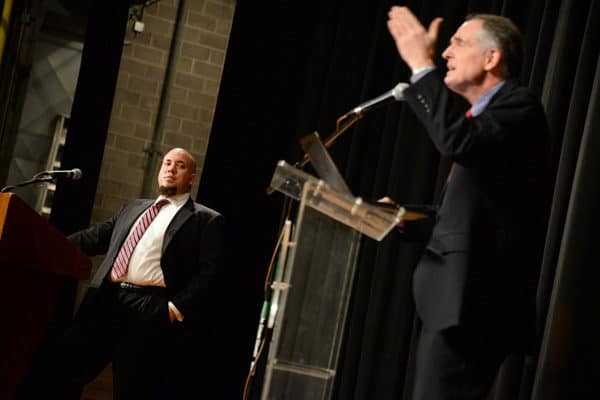
Black scholar Wilfred Reilly debating Jared Taylor.
RW: While most if not all within the “alt-right” or more relevantly, the “Dissident Right” are against miscegenation, it seems like some of them won’t settle for anything less than a 100 percent white ethnostate. They say things like, “If we allow even one good, decent black person in, it will be the slippery slope that will lead us right back to the same problems.” So, they are hostile to even one black or mixed person being either within or allied to the Dissident movement. Do whites need to be 100 percent exclusionary towards non-whites and mixed-race people or families to bring back the much-needed positive white identity to take back the country and stop the Great Replacement?
NS: No, I think that they are just extremely paranoid. If you truly fix the problem and come up with a competent system that adequately judges peoples’ character, then you will not have that problem. It’s an overreaction to what is happening now. You don’t have to exclude all non-whites and ban all mixed-race families to control the numbers and keep the white population the majority and dominant. It is irrational.
I’m definitely not saying that most blacks are like me, I know that they aren’t, but there definitely are a few, and I don’t see why the few who don’t hate whites, who don’t hate America, need to be cast out with all the rest who deserve it. Jesse Lee Peterson, for example, is not going to undermine and subvert the white ethnostate from within if he were allowed. The amount of blacks like me and Jesse is probably under 5 percent.
Part III — Future analysis of the black community
RW: How do you feel about the other so-called “black conservatives” out there?
NS: I think it’s good for black people to be independent thinkers, and to separate themselves from all of the bullshit and chaos that’s going on. It’s encouraging for me to see there are some black conservatives out there who aren’t afraid to speak out and do what is right. It’s especially good whenever I see a strong black family that has conservative values because it’s not very often that you see that, and I wish I saw more of it.
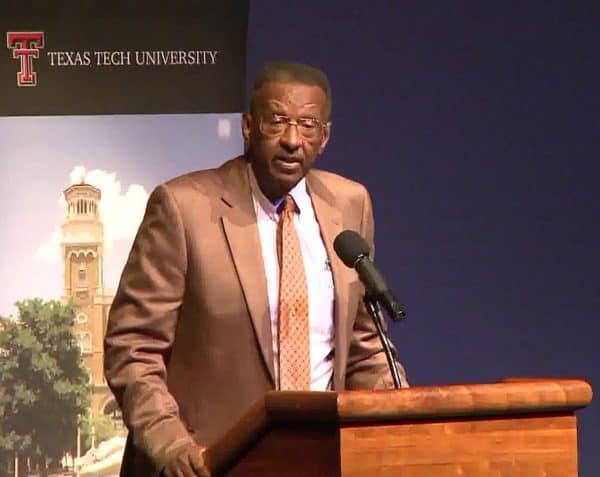
Conservative economist Walter Williams. (Credit Image: Free Market Institute at Texas Tech University via Wikipedia)
RW: There are some black conservatives who actually disavow the alt-right and who also deny the Great Replacement and, along with the Left, call it a “racist conspiracy.” They deny the race-realist position that there are innate differences between the races, and they think that they can just “win over the black community” if only Republicans put time and effort into doing so.
One could say it is the conservative version of the liberal claim that structural problems are to blame for the black community’s failures. The leftist solution is more welfare, more social programs, more specially tailored educational programs, affirmative action, etc. But the neocon’s solution is teaching them the constitution, educating them on free market principles in workshops or in school, economic zone policies that give businesses tax breaks in black areas, etc. They say that they will simply wake up to the truth and become conservatives if these solutions are implemented enough, and the problem will be solved. Your thoughts?
NS: No, it’s not going to change, because it won’t matter to most black people. There are simply a lot of lazy blacks who just don’t want to work and who will take advantage of the system. More programs and education won’t change that, in fact they will only take advantage of it even more.
I remember on social media one black girl telling people how to take advantage of Section 8 and welfare programs to get more money. They clearly take advantage of it and learn how to game the system. Although there are some people who would really benefit from certain programs or from more job opportunities because they aren’t lazy and really need the help, that’s not the majority of blacks.
So, more programs and opportunities won’t change anything in the black community. There is still going to be BLM, the riots, and the burning and looting when they get mad. They are hard to please and they want nothing less than for blacks to take over America. They are a bunch of victims who don’t want to take accountability for their actions. I think even if they were to take over America, they would still blame their problems on someone else.
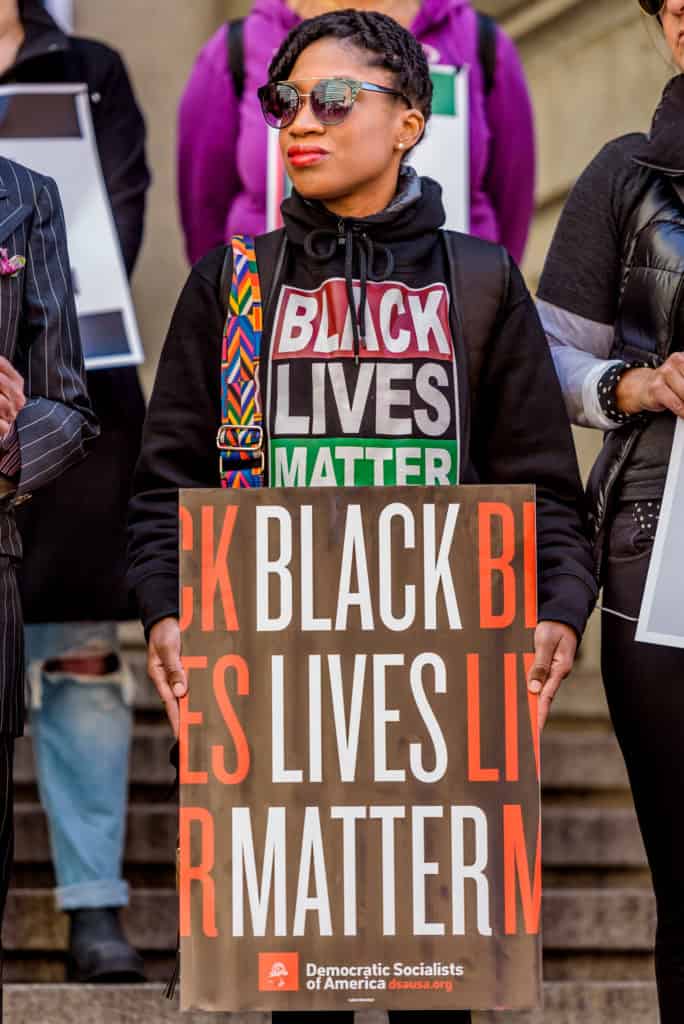
Credit Image: © Erik Mcgregor / Pacific Press via ZUMA Wire
RW: What are your thoughts on the racial differences? How much do they play a role in the racial issues and the problems in the black community? Is it primarily IQ differences? Economic? Or cultural?
NS: The cultural differences play a huge role, and even as a race realist I have to acknowledge that their self-destructive, victimhood, thug-life, lazy culture steers most blacks on a path towards failure. Even with the IQ differences back in the early 1900s, blacks were able to live fairly decent lives. Because during that period, although they faced more racial hatred from whites, they still prospered. Their families were still together, they were sincerely religious and went to church, they built their own businesses, schools, churches, and colleges. So, although they might not have been able to be as successful as whites, or capable of building a society as advanced as whites, they were able to have a reasonably decent, moral, structured, and prosperous community.
I still think that even though a lot of blacks are unintelligent, there are still a lot of them who are smart enough to know better, but they simply still go along with the culture and use their intelligence for evil causes. This is evidenced by all the black college students and politicians who go along with BLM and all the madness. They clearly can be somewhat successful in school and in holding a decent career, but instead of promoting these successful habits, responsibility, and a positive mindset, they still go along with the victim narrative.
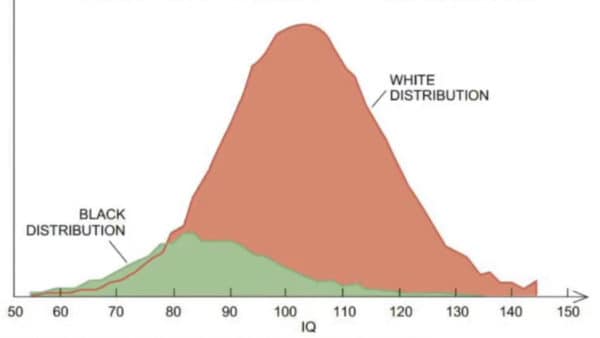
Almost all black kids grow up in the same culture, and it’s hard to avoid. They grow up listening to the same rap music, eating the same food, etc. It is hard to step outside of the cultural norms and think for yourself, especially when you are bullied when you try to do so. Most blacks would rather be accepted by their peers than to dare to think for themselves and be successful.
RW: What do you think is the number one cultural problem in the black community?
NS: Fatherless homes. No doubt about it. You can clearly tell if a black person was raised by a single mother or if he was raised by both of their parents. Most are raised by single moms. It is devastating especially to black men, because they lack that male role model and guidance, so they grow up emotional and angry at the world and run the streets. It hurts black women too when there is no discipline or order, only emotions. And a lot of the women are feminists who are very masculine, who are almost sometimes even worse than the guys, they are just as loud and obnoxious, fight all the time, and even commit acts of violence. But hands down, all the cultural problems start in the home.
RW: Do you have any hope for the black community going forward?
NS: I want to say “yes,” but as long as BLM is still around, I have to say “no.” It is an extremely toxic movement that radicalizes black youth. However, I think there’s hope for some black people but not all. The first thing that must happen for there to be any hope for the black community is the elimination of BLM and to take care of black-on-black crime. The culture needs to change from blaming the system to taking accountability. And we certainly don’t have any hope if we kick out all of the police, we need them to do their job or we’re screwed.
In a positive light, if we are to fix these problems, we need to take responsibility. It is the only answer. Build businesses, build homeless shelters, clean up your community, get the youth on the right path, why do we need the government to always do these things for us? It’s pathetic. And then we all act like we care about our community when someone dies and we’re painting BLM murals everywhere while someone is presumably getting shot right down the street. But what happened in Minneapolis is the exact opposite of what needs to happen if we are to have any hope whatsoever moving forward. It is sad when even other countries are watching in shock and awe at what has happened in the last few months and see how only one group of people causes so much destruction. It’s pathetic.
RW: Any final thoughts, or concluding statements?
NS: I hope the readers are able to benefit from reading about my experiences. While I cannot speak for most black people, I can certainly speak for myself, and I know exactly where I stand. I have known where I stood since I was a child. And, since my family genetic history traces back to blacks who lived in Europe, I’m sure there’s a small portion of European DNA that helps me see things the way I do as well.















